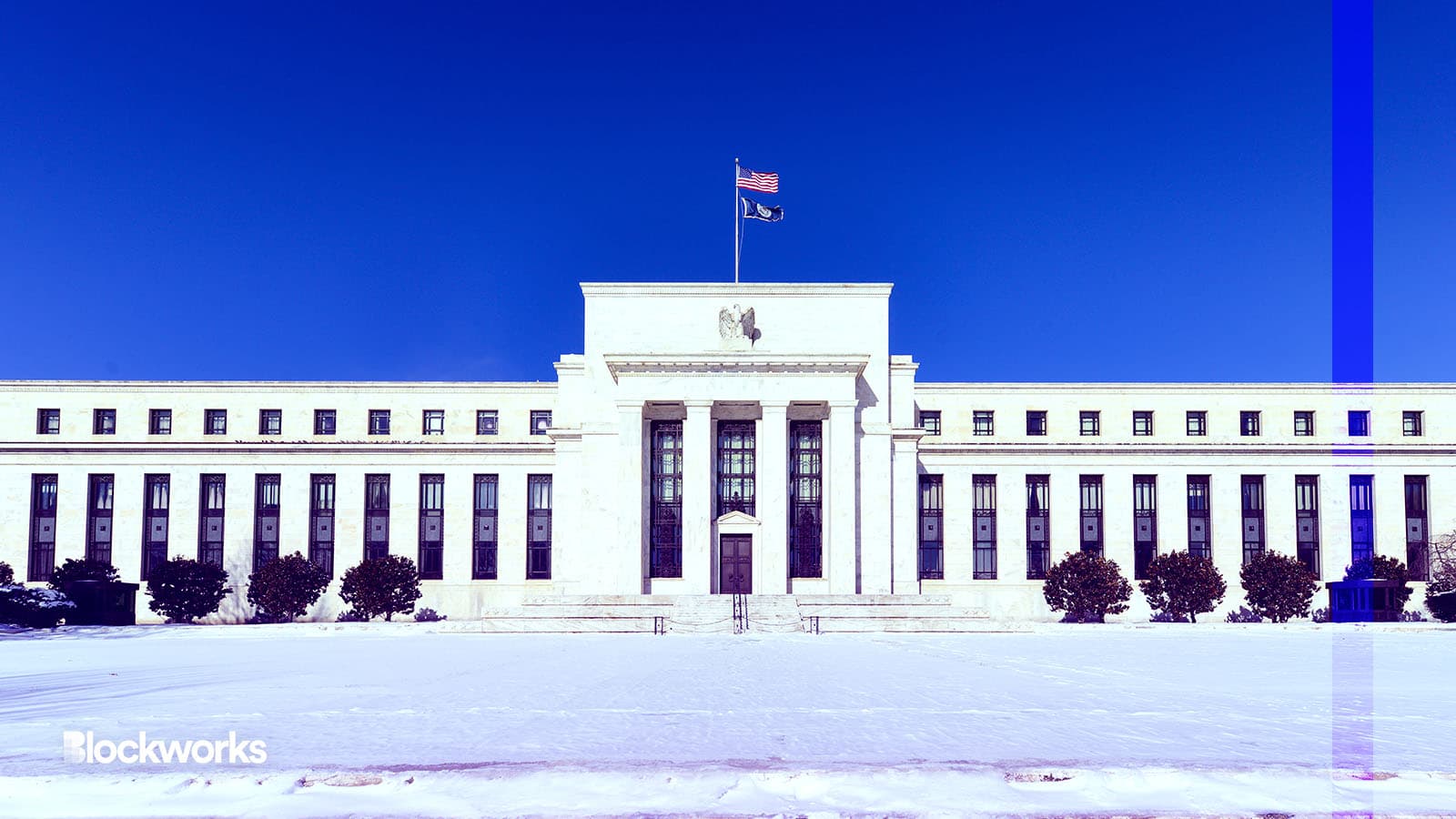Fed Board Prohibits Member Banks from Holding Cryptoassets as Principal
Member banks can still provide safekeeping services for cryptoassets if they are compliant with consumer and anti-money laundering laws

Source: Shutterstock / Orhan Cam, modified by Blockworks
A new US Federal Reserve rule has further cemented the central bank’s wariness about cryptoasset activities.
A statement issued by the board of governors of the Federal Reserve System on Tuesday clarifies Section 9(13) of the Federal Reserve Act, in response to inquiries and proposals from state member banks regarding engagement in crypto-asset activities.
The board issued two directives stating that it will “presumptively prohibit” member banks from holding most cryptoassets as principal, including bitcoin and ether, and those looking to issue a dollar token will have to demonstrate they have safe controls in place.
Further, the rules cited that the cryptoasset sector is “largely unregulated or noncompliant” with regulation from the perspective of market conduct, and that issuing tokens on decentralized networks raises cybersecurity risks.
“In practice, this presumption could be rebutted if there is a clear and compelling rationale for the Board to allow deviations in regulatory treatment among federally supervised banks, and the state member bank has robust plans for managing the risks of such activities in accordance with principles of safe and sound banking,” the board said.
Still, member banks can provide safekeeping services for cryptoassets in a custodial manner if they are conducted in a safe manner.
The Fed Reserve has 12 regional banks across the US, which each oversee member banks in their own state. These members are state banks that have chosen to join the Fed Reserve System. For instance, the Federal Reserve Bank of Dallas oversees several entities including American State Bank, Comerica, Texas National and Big Bend Banks.
Concerns have been floating that the US is clamping down on the digital asset industry, with various financial institutions like the Federal Deposit Insurance Corporation and the Office of the Comptroller of the Currency highlighting significant risks associated with the sector.
In another such incident, crypto-focused bank Custodia’s application to become a member of the Fed Reserve was recently rejected due to its “novel business model and proposed focus on cryptoassets.”
Separately, the White House issued a blog called “The Administration’s Roadmap to Mitigate Cryptocurrencies’ Risks,” calling on Congress to step up efforts to enact cryptoasset legislation.
Get the news in your inbox. Explore Blockworks newsletters:
- The Breakdown: Decoding crypto and the markets. Daily.
- 0xResearch: Alpha in your inbox. Think like an analyst.






